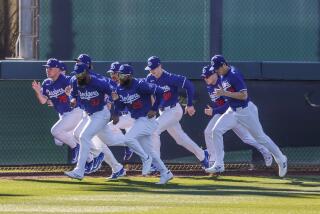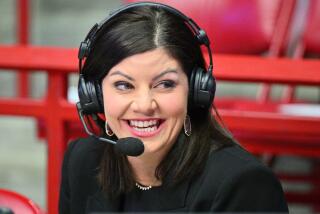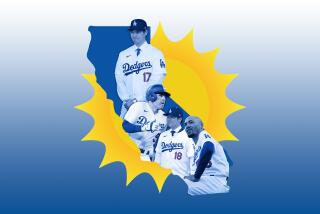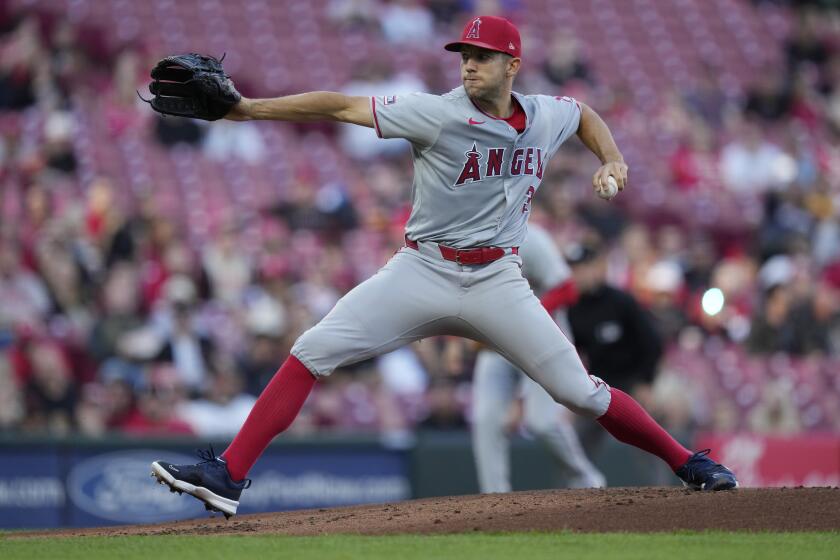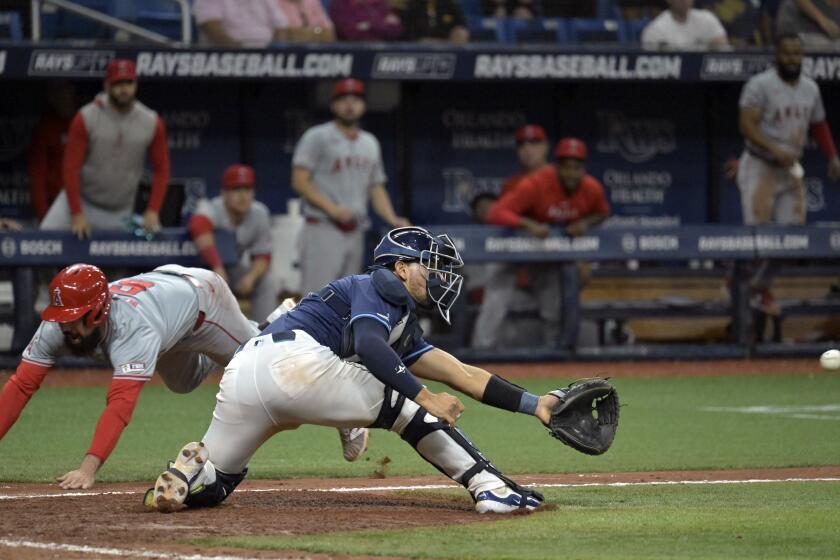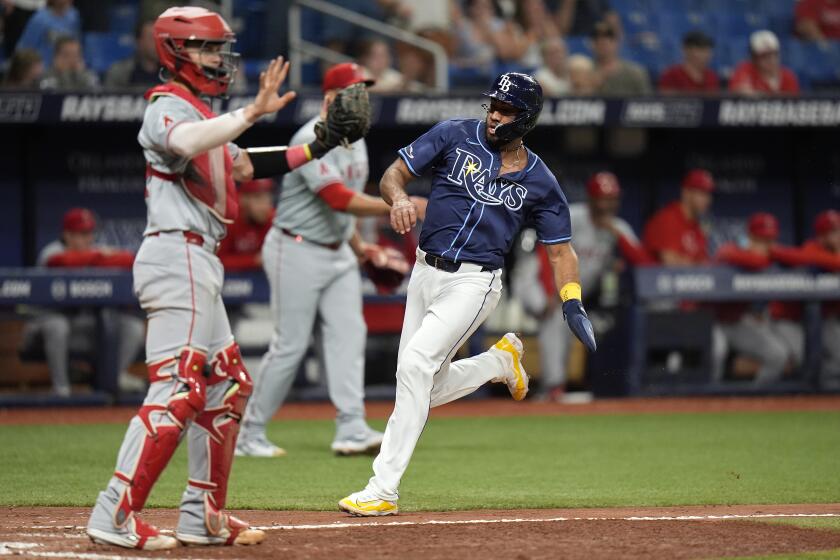How social media is killing the post game radio show
It is a rite of baseball, like singing in the seventh inning, or military jets screaming overhead on opening day.
It is the postgame radio talk show — Angel Talk, Dodger Talk, pick your team and talk. After the game, the phone lines open, and fans call in to celebrate, to debate and to complain — about the manager, the general manager, the players, maybe even the hot dogs.
The Angels are trying something new this season. They have eliminated the call-in show after road games — and hardly anyone has called in to complain about that.
“I almost sense these shows might have run their course,” said Terry Smith, the Angels’ play-by-play broadcaster and host of Angel Talk.
“I’m not the only one who feels that way.”
A generation ago, a fan’s voice might only be heard by a call to the talk show, or a letter to the local newspaper.
With the rise of the Internet — with blogs and message boards, with Twitter and Facebook — the hosts of those talk shows are debating whether technology is enhancing their programs, or slowly killing them.
On Angel Talk, Smith said, the volume of callers has declined significantly in recent years.
“You don’t want to have the same people on every night,” he said.
David Vassegh, one of the hosts of Dodger Talk, said his program is thriving. In the car culture of Los Angeles, with fans driving home from the game, he said a postgame talk show is a natural fit.
Beyond that, he said, the program engages a much wider swath of fans than a message board would.
“Baseball is built around that feeling of community,” Vassegh said. “Listening to baseball games on the radio is part of that feeling of community.”
In San Francisco, Marty Lurie said he and others in the industry are watching the Angels’ experiment closely.
Lurie, one of the hosts of the San Francisco Giants’ call-in show, said social media has presented a challenge for him and his colleagues.
“You have to work harder to engage the audience,” Lurie said, “because they have other ways to express themselves.”
Before a show starts, Lurie sometimes takes to Twitter to ignite a debate. The other night, he asked fans via Twitter if they would trade Madison Bumgarner, Mike Leake and Jake Peavy for the top trio of starters on any other team in the National League.
“I must have had 150 people right away,” Lurie said.
He read the best responses on the air, then invited callers to weigh in.
Smith said he would be reluctant to solicit fans to call in and identify, say, their all-time favorite Angels second baseman.
“The idea of Angel Talk, for me, is to talk about the game,” he said.
On the last trip, the Angels invited fans to use Twitter to ask questions during Smith’s broadcast of the game, with replies from as far away as Australia, England and Italy. Smith said the Angels could consider similarly incorporating Twitter into the call-in show.
He said the Angels have made no decisions about the call-in show for next season — including, for that matter, whether he will be part of the radio team. His contract expires at the end of the season.
Smith, whose 14-year tenure is the longest of any radio broadcaster in Angels history, said he understands the team is focused on finding a new general manager and he expects to resolve his situation in the off-season.
“I have no desire to retire,” he said.
Radio was supposed to die when television was born, but the radio industry continues to prosper. Lurie predicted the call-in talk show would continue to prosper as well.
“Calling in on radio is part and parcel of baseball on the radio,” he said. “I think that is something that will live on.”
In that case, Vassegh is well aware of another tradition that will live on.
“When the team wins, you’re not going to get as many calls,” he said. “When the team loses, everybody wants to call in and voice their frustration.”
Twitter: @BillShaikin
More to Read
Go beyond the scoreboard
Get the latest on L.A.'s teams in the daily Sports Report newsletter.
You may occasionally receive promotional content from the Los Angeles Times.

